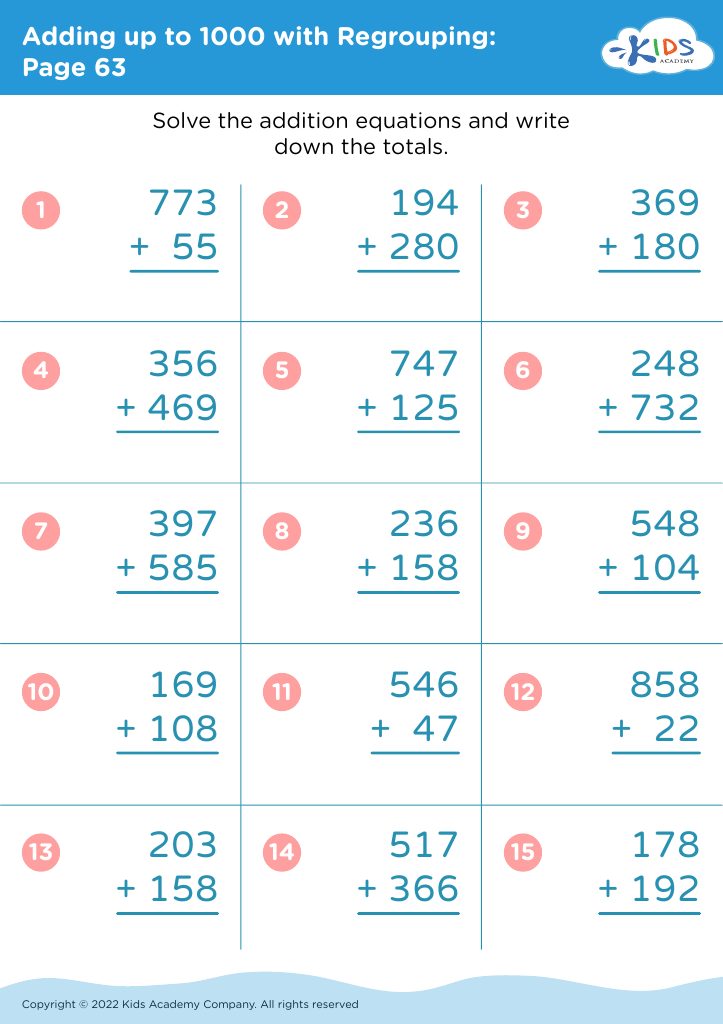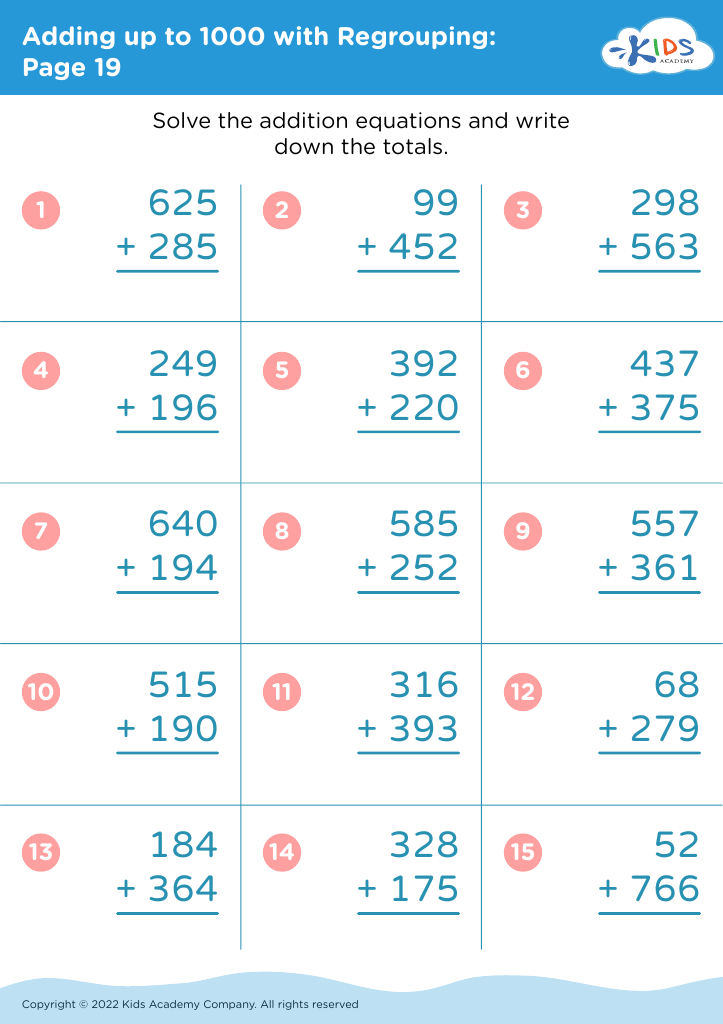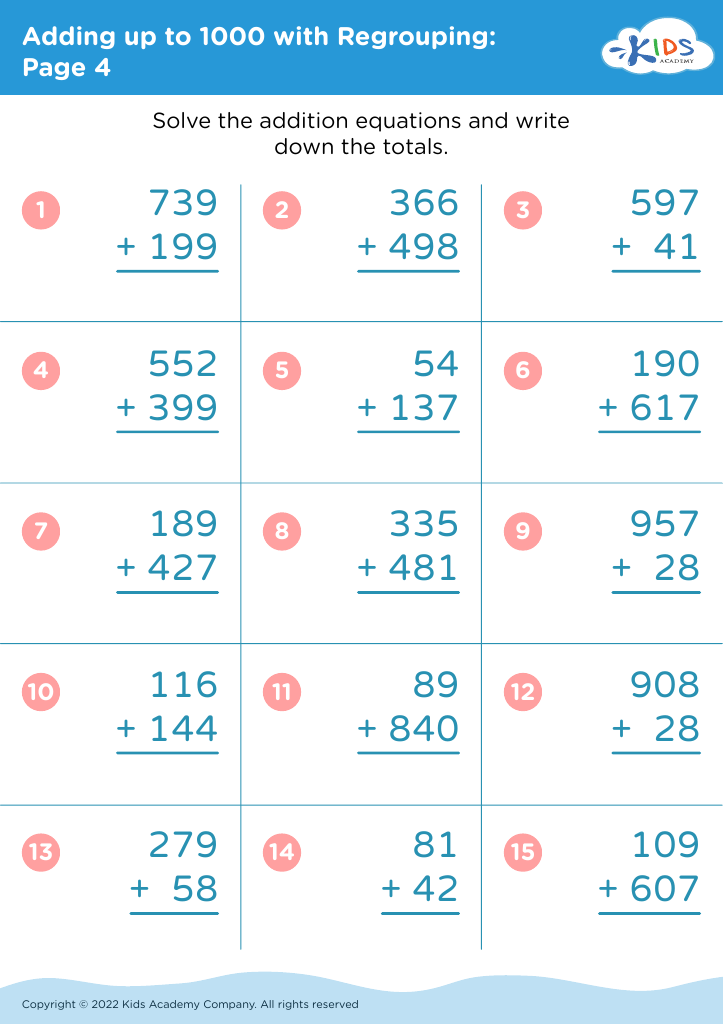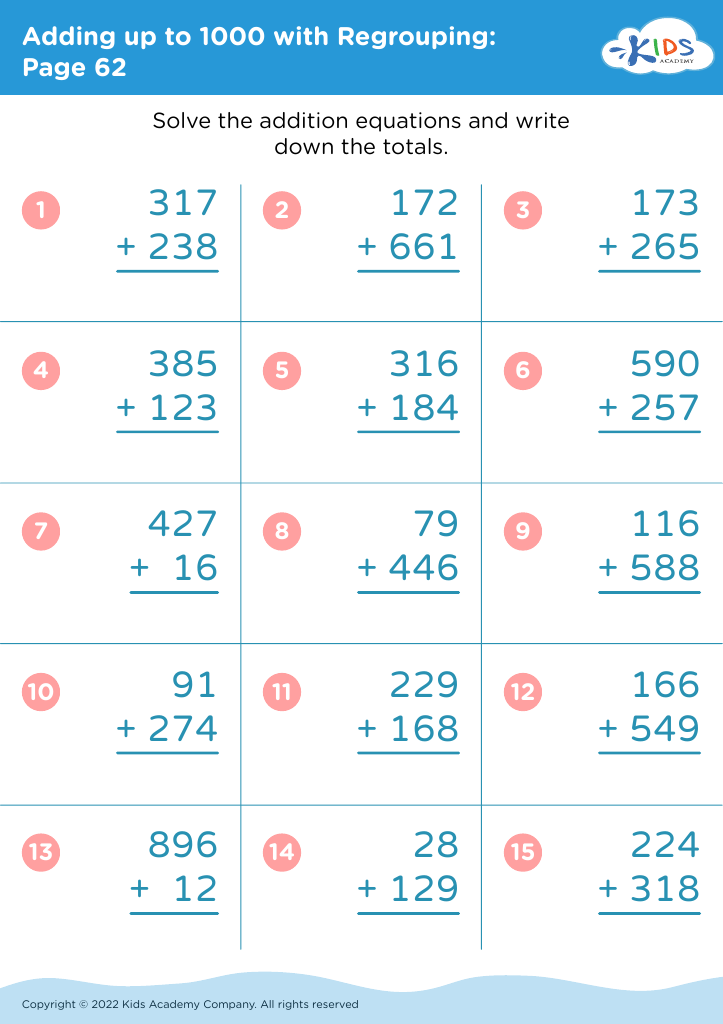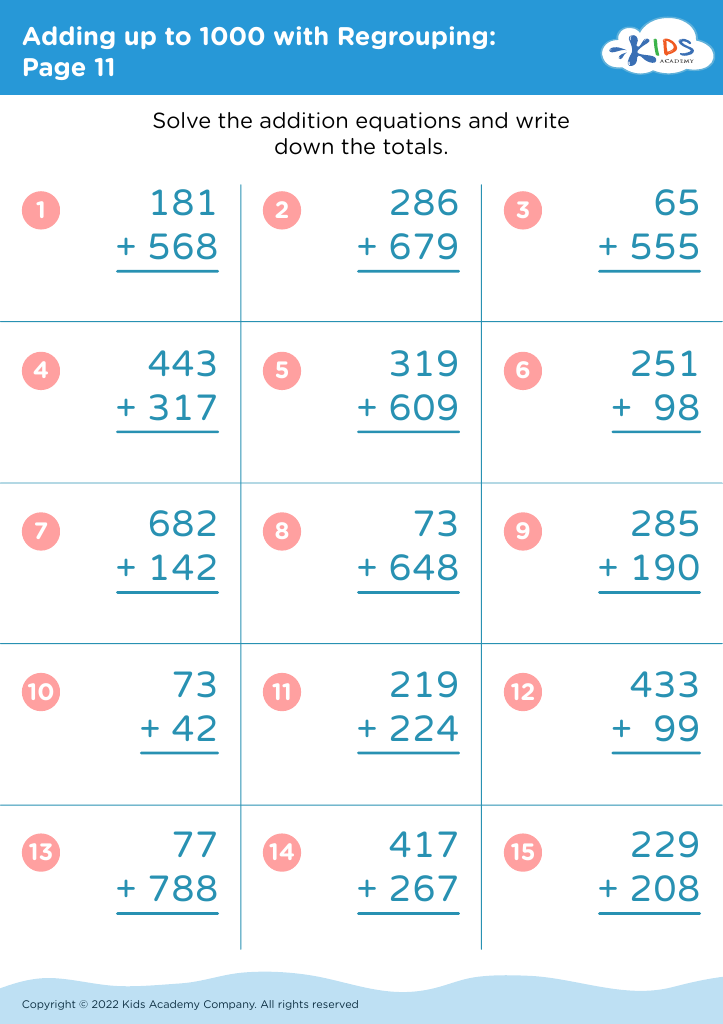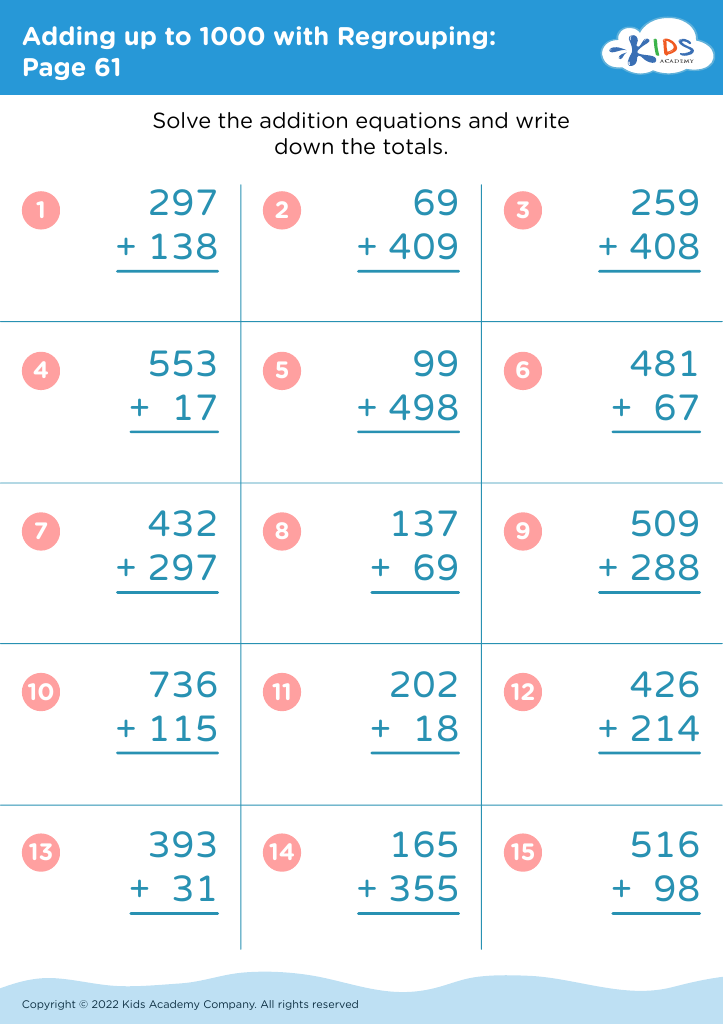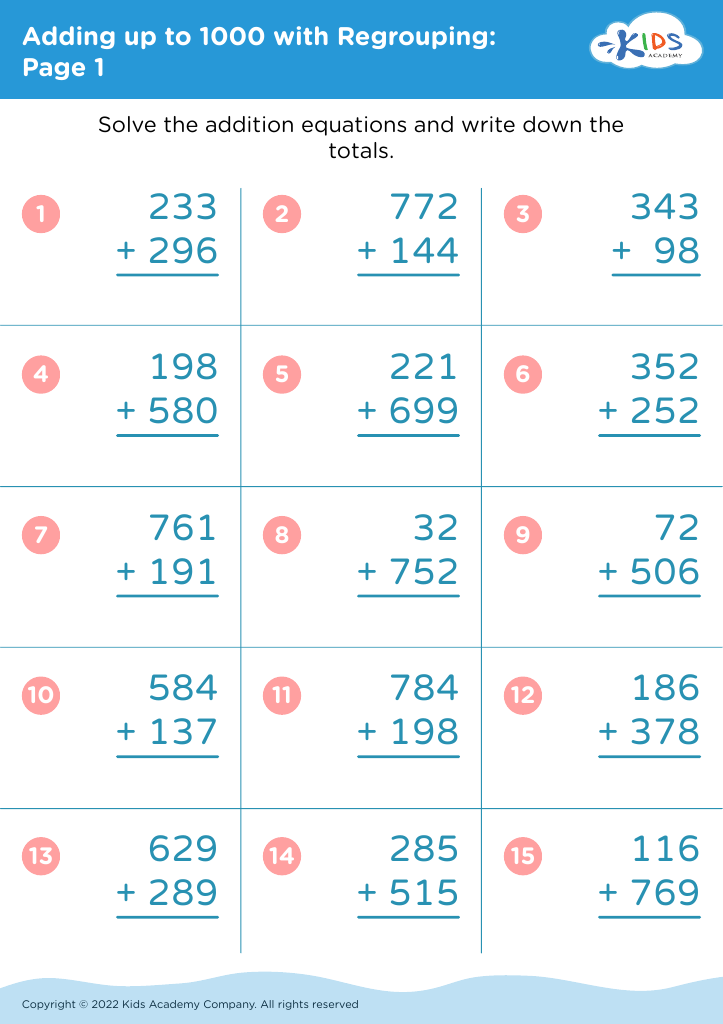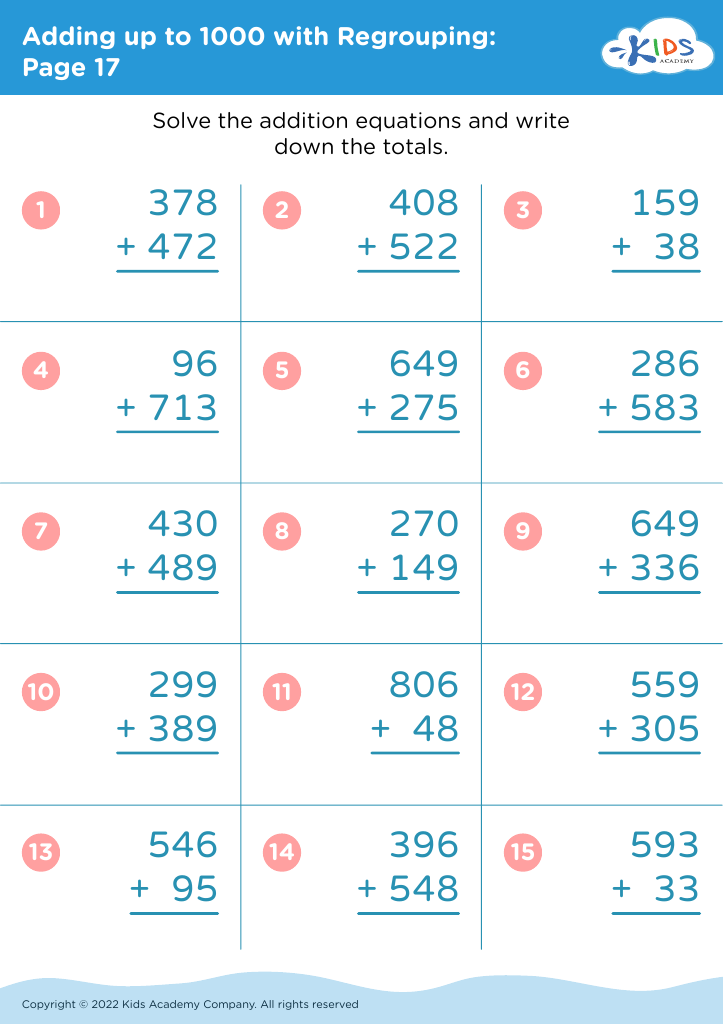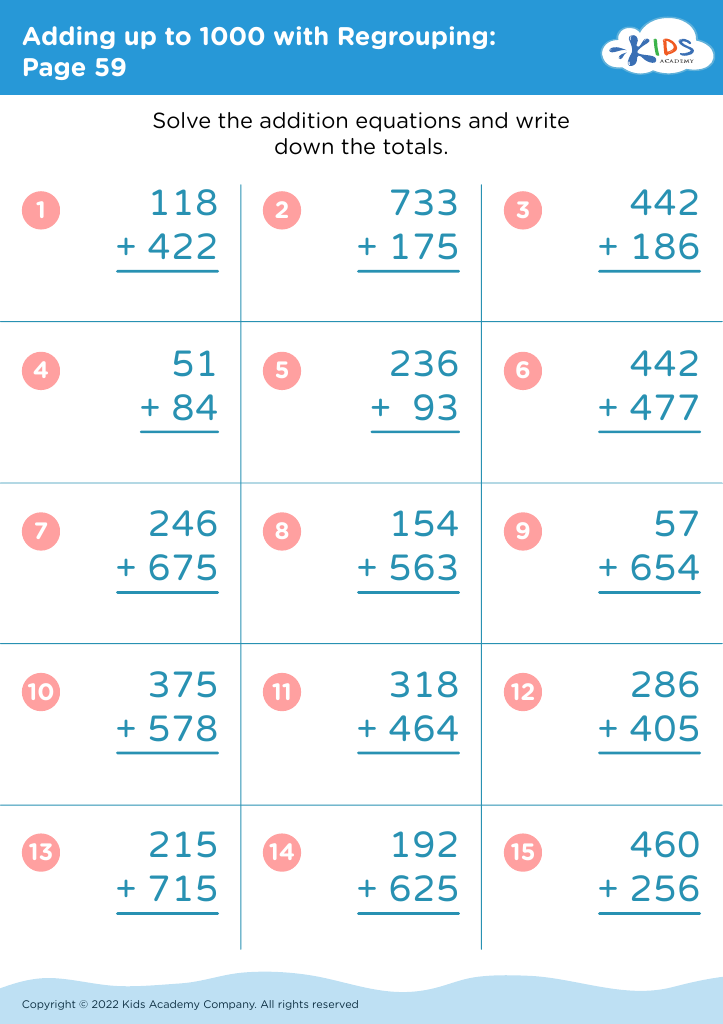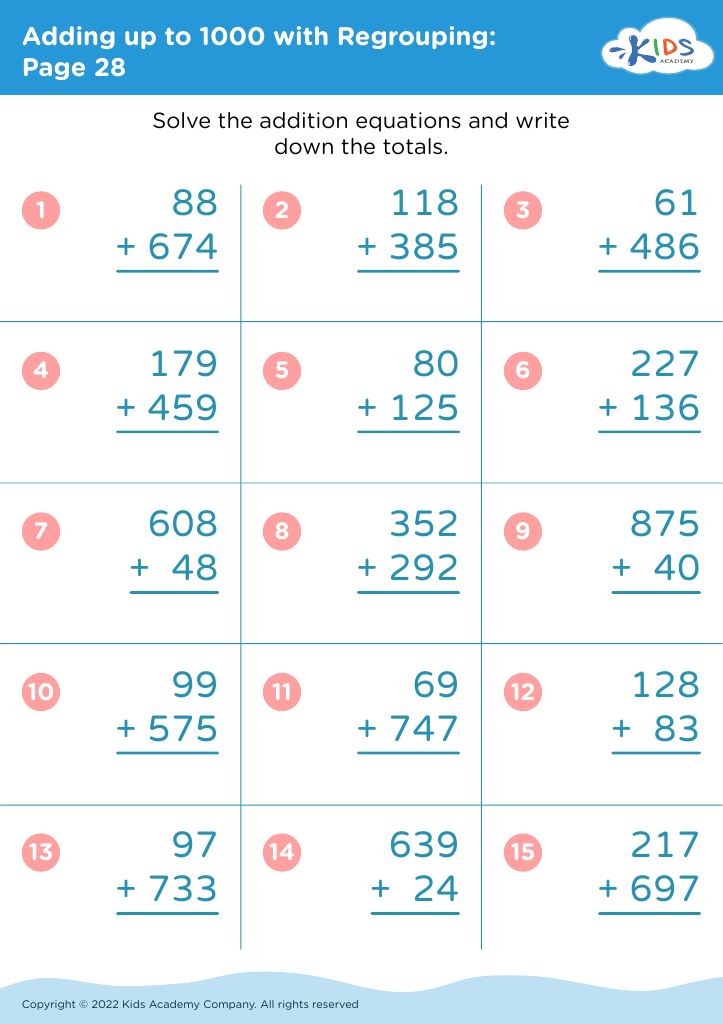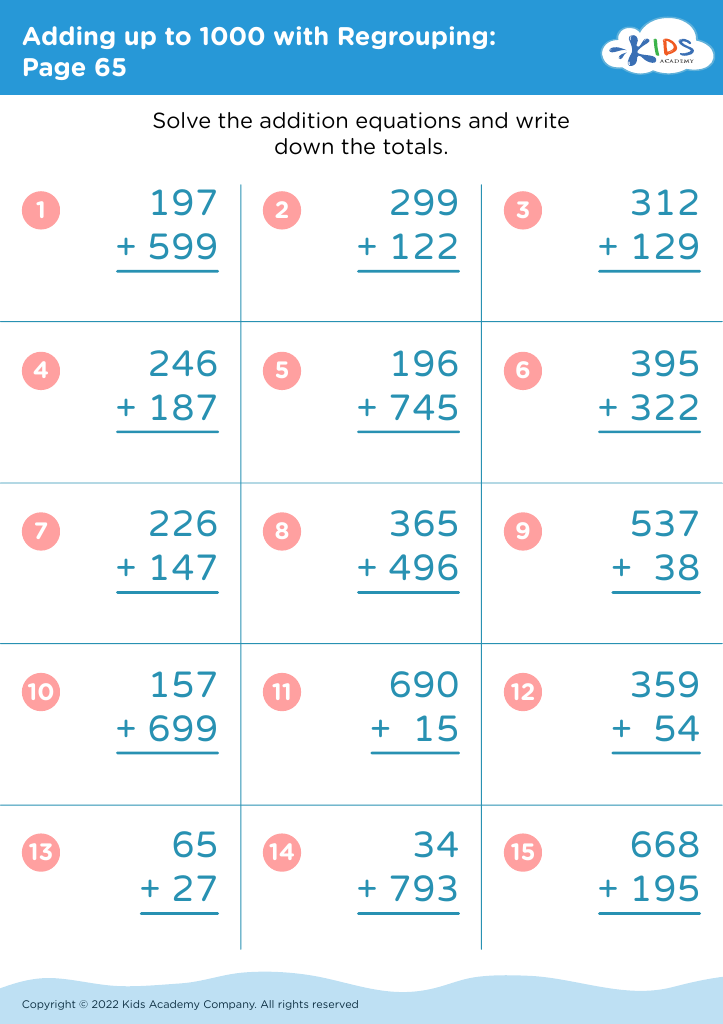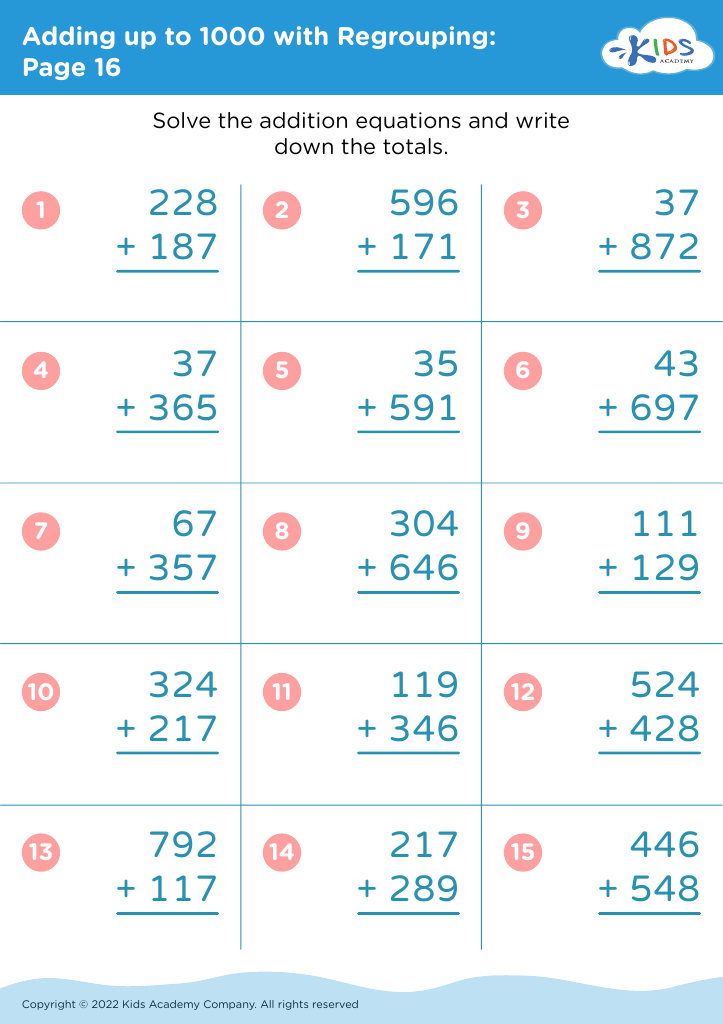Understanding fractions Adding up to 1000 with Regrouping Worksheets for Ages 7-9
18 filtered results
-
From - To
Welcome to our "Understanding Fractions: Adding Up to 1000 with Regrouping Worksheets" designed specifically for ages 7-9! These engaging worksheets provide a fun and interactive way for young learners to grasp the concepts of fractions and addition with regrouping. Through colorful visuals and practical exercises, students will develop their math skills by exploring how fractions fit into the larger context of numbers up to 1000. Each worksheet is tailored to enhance understanding, boost confidence, and encourage problem-solving skills. Download our worksheets today to help your child become more proficient in fractions while enjoying their math journey!
Understanding fractions and mastering the skill of adding up to 1000 with regrouping are fundamental for children aged 7-9, as they serve as building blocks for more complex mathematical concepts. For parents and teachers, fostering this understanding is essential because it lays a strong foundation for critical thinking and problem-solving skills.
Fractions introduce key mathematical ideas such as parts of a whole and equivalency, which permeate various aspects of daily life, such as cooking and budgeting. Mastering the concept of percentages and fractions enhances a child's numerical literacy and prepares them for real-world applications, ensuring they understand scale and proportion.
Additionally, teaching regrouping in addition promotes mental flexibility. This method teaches children to break down complex problems into manageable parts, which boosts their confidence. It develops resilience in learners, showing them that mistakes are part of the learning process.
Moreover, ensuring children grasp these fundamental concepts can lead to increased performance in more advanced mathematics, preventing future gaps in knowledge. Overall, promoting a comprehensive understanding of fractions and regrouping strengthens not only academic performance but also essential life skills, making it a priority for parents and educators alike.
